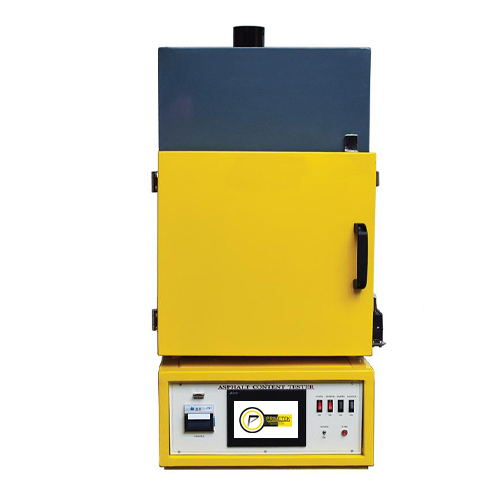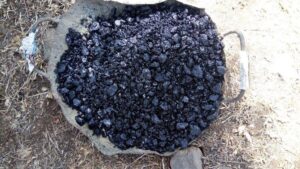Asphalt Content Tester

Asphalt Content Tester – An asphalt content tester is a device used to determine the proportion of bitumen (a black, sticky substance derived from crude oil and used as a binding agent in road construction) in an asphalt mixture. The asphalt content is a critical factor in the quality and performance of asphalt pavement.
The process of determining asphalt content involves extracting the bitumen from the asphalt mix and measuring its weight as a percentage of the total mix. There are different methods and equipment used for asphalt content testing, but the most common is the ignition method.
Specimen Tested in Asphalt Content Tester

Basic Overview of How The Asphalt Content Testing Process Typically Works:
Sample Preparation:
A Representative Sample of The Asphalt Mixture is Collected.
Ignition Method:
- The sample is heated in an oven to burn off the bitumen.
- The weight loss after ignition is used to calculate the asphalt content.
Calculation:
- The asphalt content is calculated as a percentage of the total weight of the original sample.
Verification:
- The results are compared to specifications and standards to ensure the asphalt mix meets the required criteria for construction.
The asphalt content tester is crucial for quality control in asphalt production and construction projects. Accurate determination of asphalt content ensures that the asphalt mix has the right amount of bitumen, leading to proper binding and durability of the pavement. This, in turn, affects the performance, longevity, and resistance of the asphalt pavement to various environmental factors.
Various types of asphalt content testers are available in the market, ranging from manual methods to automated equipment. These testers may differ in terms of their precision, speed, and the scale of operations they are designed for. The choice of a specific asphalt content tester depends on the needs and requirements of the testing process within a particular construction or asphalt production context.



